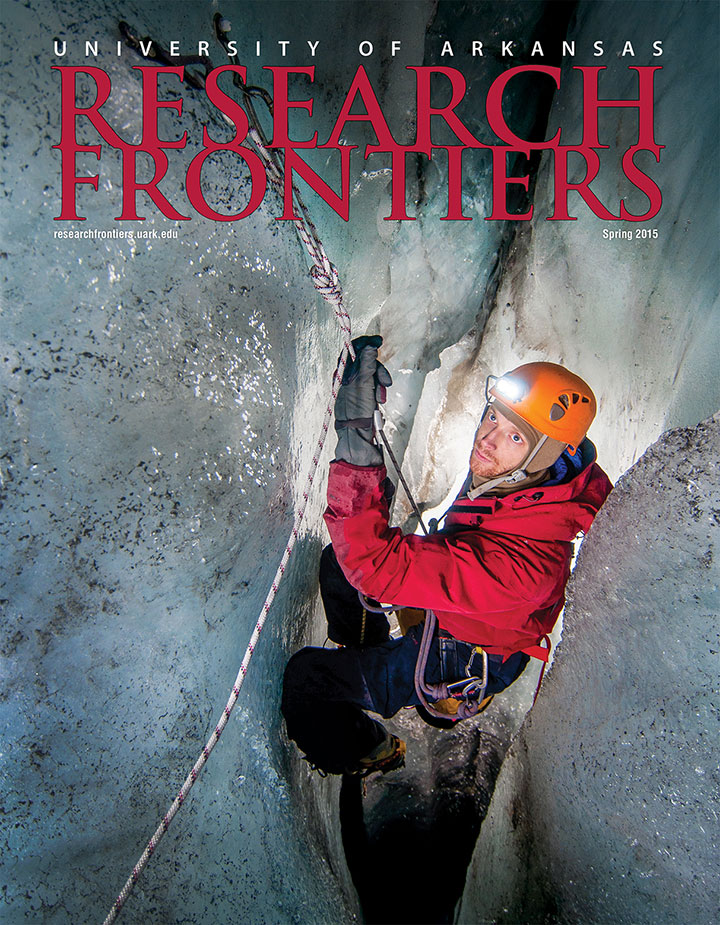FAYETTEVILLE, Ark. — The new issue of Research Frontiers includes stories on the secret life of water, lessons from Frank Lloyd Wright, cancer-fighting data and efforts to cure the formidable stomach flu.
In Hydrology from the Inside Out, assistant professor Matt Covington searches for answers to how caves and karst topography interact with water sources. Understanding the intricacies of karst can help municipalities manage water resources and deal with hazards. Covington is one of just six speleophysicists — cave physicists — in the world.
Robin Soster, assistant professor in the Walton College of Business, explains the psychology of spending your last dollar in Everything is Relative. Happiness in spending is relative to the pocketbook.
In Data: A New Weapon Against Breast Cancer, industrial engineering professor Shengfan Zhang cracked the code on conflicting cancer screening requirements through her use of data mining and statistical modeling.
Building Art chronicles work by students and faculty of the Fay Jones School of Architecture in studying and preparing for Frank Lloyd Wright's Bachman Wilson House to move to Crystal Bridges Museum of American Art.
Preserving Ozark Voices highlights the newly digitized collection of Ozark voices, vernacular, folklore and folk songs as a chronicle of a field of study. You can listen to it here.
And student researcher Sebastine Arthur works to Flush Out the Facts about the stomach flu in his search for a cure.
For more research news at the U of A, go to researchfrontiers.uark.edu or follow us on Twitter @UArkansasResearch and Facebook at University of Arkansas Research News.
About the University of Arkansas: The University of Arkansas provides an internationally competitive education for undergraduate and graduate students in more than 200 academic programs. The university contributes new knowledge, economic development, basic and applied research, and creative activity while also providing service to academic and professional disciplines. The Carnegie Foundation classifies the University of Arkansas among only 2 percent of universities in America that have the highest level of research activity. U.S. News & World Report ranks the University of Arkansas among its top American public research universities. Founded in 1871, the University of Arkansas comprises 10 colleges and schools and maintains a low student-to-faculty ratio that promotes personal attention and close mentoring.
Topics
Contacts
Amy Schlesing, director of science and research communications
University Relations
479-575-3033,
